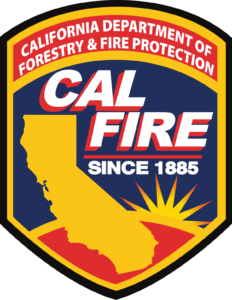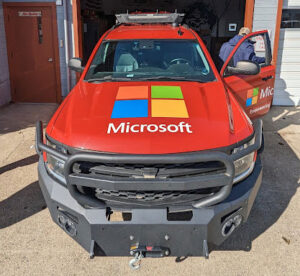
When we talk about research and demonstration at Jackson Demonstration State Forest, we are usually
talking about sustainable forest management, watershed restoration, and multiple use benefits. Earlier this month, JDSF had the opportunity to serve a very different purpose.
Ben Rogers, Assistant Deputy Director, Research, Development and Innovation with CAL FIRE, brought together representatives from three technology companies, Microsoft, ESRI, and HyphaMesh, to test their cutting-edge communication technologies in a real-world, heavily forested environment. This
technology promises to bring high speed internet, along with location-enabled data and communication,
to places that lack such access, and to emergency situations where standard communication options
become unreliable.

The centerpiece of this technology is Microsoft’s Tactical Vehicle. It’s an SUV with a satellite dish on top, a next-generation battery pack in the back, and an everything-but-the-kitchen-sink suite of computer technologies on-board. From this central node, the HyphaMesh network reaches out. These rugged, 2-pound repeaters pass data from unit to unit, creating a “mesh network” that can spread across acres, or daisy-chain for miles. Trees present obstacles for communication waves, and these mesh networks can allow signals to get deeper into the forest. This technology has a wide array of possible applications – from providing emergency response communications infrastructure in remote areas to allowing access to high-speed internet to the most rural and isolated communities across not just California but the U.S. This technology, which is currently in the testing phase, will play an important role in emergency response for decades to come.